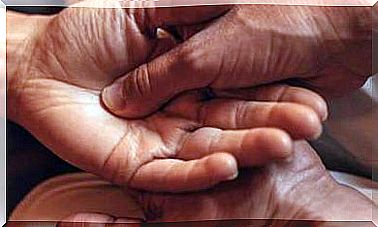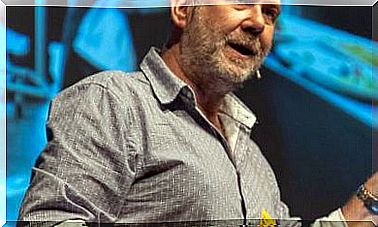“The Scientific Basis Of Psychiatry Is Almost Non-existent”
Javier Álvarez is one of the promoters of New Psychiatry, a movement that criticizes current “biologicism” and defends a psychology with a soul.

Javier Álvarez Rodríguez is an honest psychiatrist who has always practiced “in a traditional way but with a lot of self-criticism”.
Until recently he was head of the Psychiatry Service of the Hospital de León, the reference center in the community. His 40 years of professional experience have been dominated by a question: “Is psychiatry beneficial or harmful?”
Javier Álvarez: “Medicines are used without knowing how they work”
—Your position in favor of demedicalization recalls the antipsychiatry movement…
—In 1967, when I began to study, the first antipsychiatric revolution began in Spain.
He was in love with Cooper, Laing and Basaglia. For me they have been very important readings, but I have not stopped there, because antipsychiatry did not propose any real solution to mental illness.
“What did he bring us then?”
—First, the disappearance of the madhouses. In Europe and the United States there were about two million people locked up for life who have freed themselves: this is already important.
Furthermore, self-criticism persists: to what extent is psychiatry scientific? To what extent is it a branch of medicine? To what extent are diagnostics valuable? To what extent are the treatments beneficial? That spirit remains despite the fact that the last 20 years have been especially biologic psychiatry.
“Something objective has been pursued to diagnose and treat …
” “ Yes, as a way of approaching medicine; and also by the law of the pendulum: from the extreme psychologist to the extreme organicist in recent decades, which I believe is coming to an end.
The pendulum has reached the extreme and a movement towards a psychiatry with more soul, more spirit will probably begin.
There is no scientific, biochemical, or medical reason that justifies one in two Americans being diagnosed with a mental illness. An absurdity, but they are figures that are repeated in Holland or France, and in Spain we are close to 40%.
These people will also receive lifelong treatment. There are probably economic interests on the part of the biochemistry multinationals.
“He says that drugs are used without knowing how they work.”
-Yes. The biochemistry of the brain is very unknown. A single neuron has between thousands and millions of connections with others.
A different chemical is at work at each of those connections, and there are trillions of neuronal synapses in the brain. The scientific basis for psychiatry is almost non-existent …
The neurophysiological, genetic, pharmacological basis is a swamp of quicksand.
“Many possibilities for Healing are outside the academic framework of mental illness”
—Perhaps if we expanded the limits of biology, as for example the biologist Bruce Lipton does…
—One of the serious defects of psychiatry is that they put you within a framework of knowledge: I have studied seven years of medicine, three or four psychiatry …
They tell me that this is so, and with those earmuffs you work. In these months that we are launching New Psychiatry, I have realized that many possibilities are outside this limited framework, and that there are possibilities that are probably more decisive than those learned in the faculties.
Like orthomolecular medicine or nutrition… How is it possible that nutrition, which is the basis of life, is not in the medical career?
The New Psychiatry and the reduction of drug use
“What is New Psychiatry?”
—My dissatisfaction led me to investigate the symptoms of schizophrenics or manic-depressives, which are the diseases in which we are doing the most damage.
And I have dared to elaborate a hypothesis: what we call bipolar syndrome or schizophrenia are actually psychic experiences that, to a greater or lesser extent, we all share, and that are an expression, not of a disease, but of a cognitive function that is expressed through hallucinations, panic attacks, depressions …
Experiences that many people have without giving it pathological value, but positive and productive. I have called it “hyperia”.
“What is hyperia?”
—Hiperia literally means “excess.”
And I have decided to call my hypothesis that because the experiences to which I refer are mostly excessive, very intense; automatisms that are experienced with tremendous intensity.
“How do you apply that to psychiatric practice?”
—We must not forget that we are talking about diseases that appear in youth.
The kids undergoing antipsychotic treatment are abutal, apathetic, without feelings, without the ability to think, to act, to want … to live!
The idea is, therefore, to do a different psychiatry, in which we try to medicalize or pathologize to a minimum. Use drugs only when they are essential, and in those cases, do it in the right doses, at the right times and for the right time.
“But psychotropic drugs are addictive, how do you get to use them that way?”
—They are addictive due to the anguish produced by removing that kind of switch that turns off the anguish.
But it can be done gradually and with the support of families, the environment … It is important to give families a different message. I do not understand that nickel or lithium is taken for thirty years without relapses, causing hyperthyroidism, nephritis …
There are things that can be safely avoided because the clinic says that nothing will happen, and others that must be done gradually and with the help of the family.
Support techniques
—Do you combine the treatments with other techniques?
—We are discovering the potential of the horizontal group.
People, family members, classical therapists, psychologists, psychiatrists, social workers, complementary therapists, experts in reiki, orthomolecular medicine, nutrition, yoga, expert patients meet …
They are people who have been looking for the solution for years and know the valid mechanisms to overcome the problem. We are organizing this in several places, where they arise or ask us, and it is already underway in several provinces. The great discovery is that in the end we are all.
-What does it mean?
—The first step in the group is to lose the fear of stigma.
I start the sessions by saying that I have been diagnosed with this and that, and that I have taken Prozac for ten years and that I have panic attacks… and that I have been managing all that. When I say it, someone else dares to say it.
One is in this phase and the other is in this phase, but we all have something to contribute and receive from the experience of others: we are all patients and we can all be therapists. For that, it is key to eliminate stigma.
For more than 10 years, Javier Álvarez has led a movement to renew the psychiatric care model. It proposes to end the abuse of diagnoses and the excessive use of drugs.
At the same time he has developed the hypothesis “hyperia”, which explains the symptoms or psychic manifestations as “excessive experiences”, which are the expression of a special sensitivity.
This sensitivity manifests itself in mystics, artists, and the “mentally ill.”
According to “hyperia”, the symptoms may be an advance of future potentialities of the evolving human brain.









